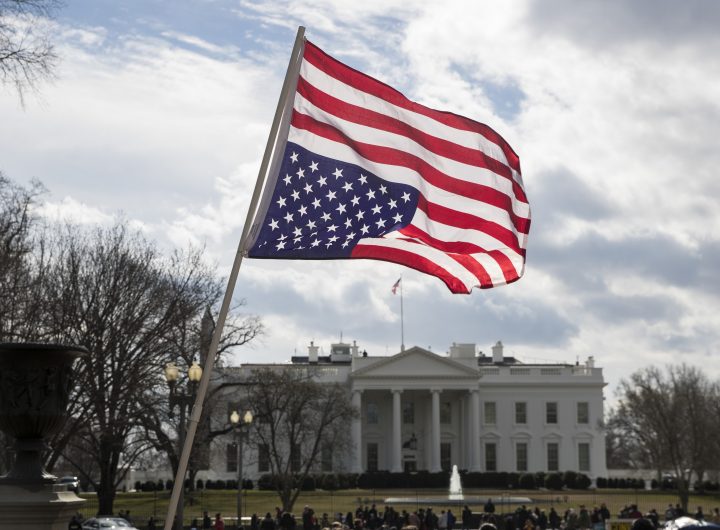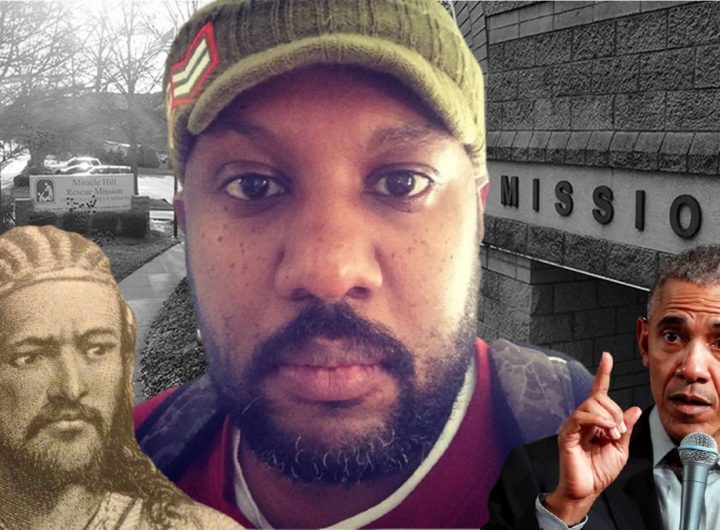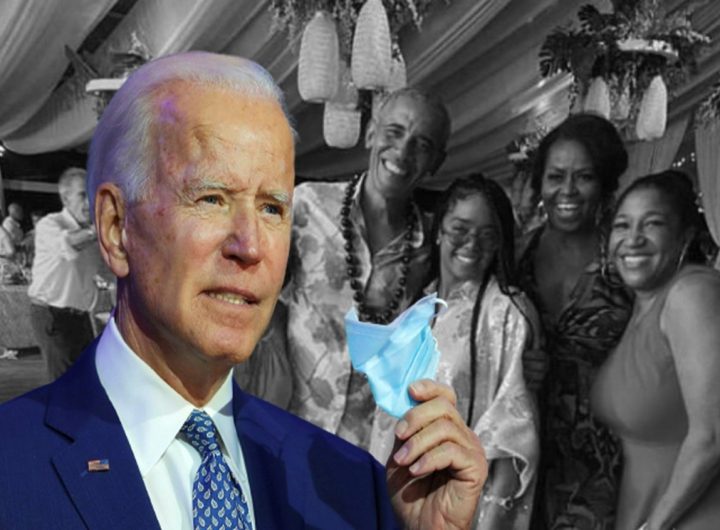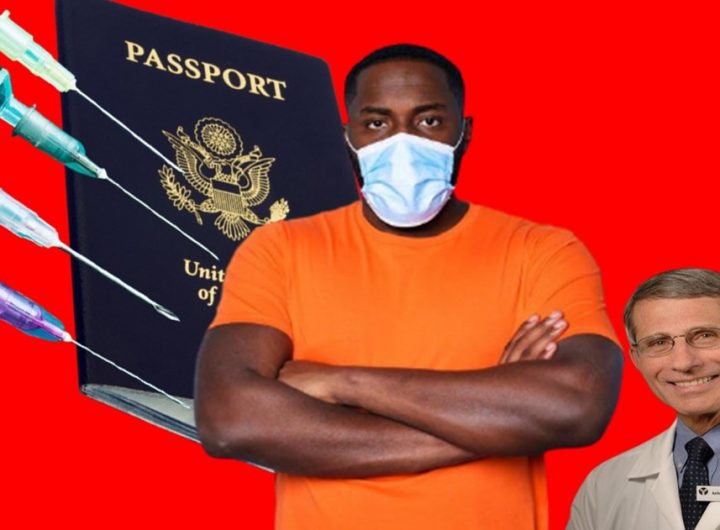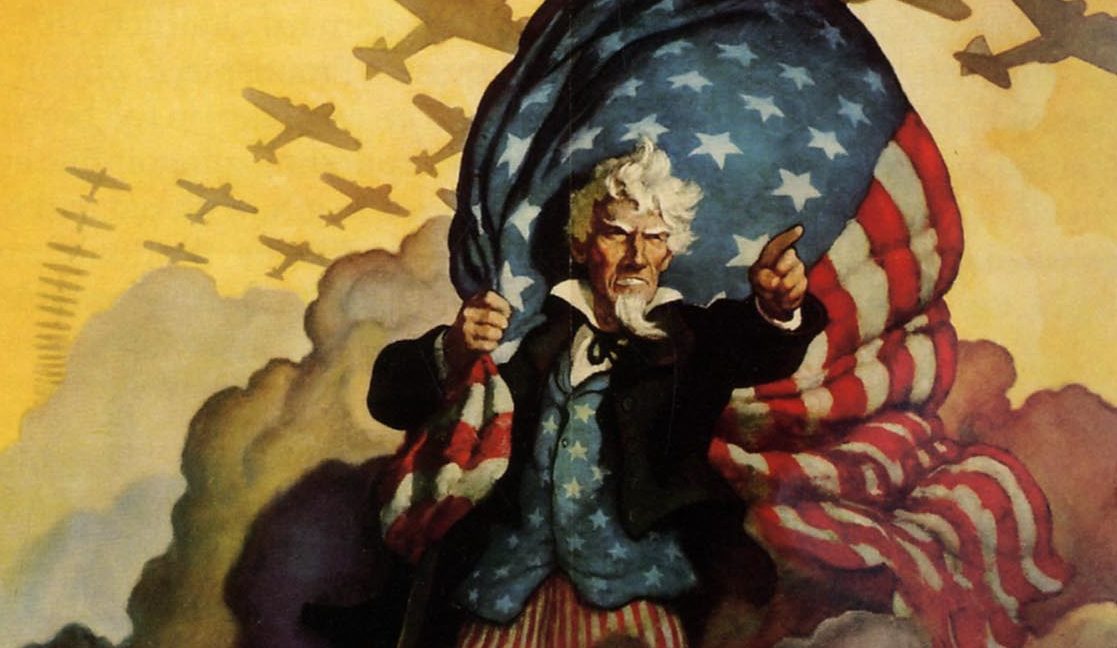
As we head deeper into 2019, it has become clear that the political discourse in this country has reached a crossroads of sorts. With a government shutdown that recently ended and continued talks of collusion between Trump and Russia, the level of fear from the public in response to this administration is at an all time high. Trump’s rhetoric and governance is responsible for a radical change in the way we conduct political discourse. His presidency is viewed by many as so dangerous, that the urgency of opposing him at every turn is considered the highest priority for organizing, activism, and overall political action.
Of course this issue isn’t universal, given the large base of support Trump has with many voters in this country. In the end, he was given a mandate to govern, despite the unpopularity of this “mandate” with a broad sector of society. This point is often overlooked, as explanations for Trump’s support among segments of the population range from the “Russia, Russia, Russia” narrative, “Deplorables”, “Economic Anxiety”, or “White Supremacy”. If we are to be truthful, there is probably a hint of accuracy to each one of those explanations, with some bearing more fruit than others.
But here’s the rub; history did not begin on January 20th, 2017, America did not need any help becoming more racist, nor did the country need any help being more exploitative, whether that be towards people or the climate that people live in. Moreover, those who otherwise understand why white supremacy is dangerous yet fail to understand that point are missing the complete picture. Analytical shortcomings often come from solely examining systems without examining the pathology behind the systems. Trump’s government is a system stemming from the pathologies of white supremacy and militarism, and it is time to examine the characteristics of those pathologies, particularly that of militarism and US imperialism.
In becoming president, Donald Trump has played a major role in bringing back into the forefront of mainstream American culture the trope of the “Oafish Racist”, as Ta-Nehisi Coates put it. Coates, using the example of Cliven Bundy, who at the time asked the question of whether black people in this country were better off as property, says of Bundy’s oafish racism “He invokes the crudest stereotypes, like cotton picking. This makes white people feel bad.” He goes on to say:
The elegant racist knows how to injure non-white people while never summoning the specter of white guilt. Elegant racism requires plausible deniability, as when Reagan just happened to stumble into the Neshoba County fair and mention state’s rights. Oafish racism leaves no escape hatch, as when Trent Lott praised Strom Thurmond’s singularly segregationist candidacy.
Elegant racism is invisible, supple, and enduring. It disguises itself in the national vocabulary, avoids epithets and didacticism. Grace is the singular marker of elegant racism. One should never underestimate the touch needed to, say, injure the voting rights of black people without ever saying their names. Elegant racism lives at the border of white shame. Elegant racism was the poll tax. Elegant racism is voter-ID laws.
There is really no better way to explain this dichotomy. Yet, this analysis falls short, perhaps with no fault from Coates, who was using the example to make a point about domestic racism and its institutional restraints. In order to understand the shortcomings of Coates’ analysis in the context of our examination of white supremacy and US imperialism, we have to emphasize one point that will serve as a guiding principle going forward in this essay. When we look at America, we see this entity of land, institutions, people, and borders as a country, a large one in a community of nations. We form our way of governance, organizing principles, and culture around the idea of America as a country.
The problem is that America is not a country, but an Empire whose reach expands to every corner of the globe. This empire consists of military bases, soldiers and their families, the positioning of weapons, some of which are nuclear, on distant lands far from the consciousness of Americans. This empire not only places a bulls-eye on any nation with US military hardware, but our presence in these countries often interferes with the governing process of these nations and sometimes hinders the decision making capability of foreign leaders. The budget that sustains this empire represents more than half of all Congressional discretionary spending, and encompasses an annual spending bill of over $1 trillion.
Coates’s description of the “oafish racist” still serves our analysis well, because it allows us to see Donald Trump for who he is, without conflating the person with the underlying pathologies that corrupt the entire system. Trump as the “oafish racist” conjures up that same sort of white guilt in many, given his crude way of making racism mainstream again. For instance, his stance of neutrality taken during Charlottesville was seen by many, including many white people, as racist. For modern white America, it is cool to hate the racism of Neo-nazi’s and white nationalists. They are out there, in your face, with the language and symbolism that doesn’t allow them to hide their support of white supremacist principles.
Trump, for many, has evoked that “early 20th century America” feel that recalls the guilt of white people, the type of guilt which usually stems from the examination of America’s past, while allowing them to continue to ignore the racism of America’s 21st century institutions. This has not only defined how we look at racism in the modern context, but how we examine the anti-racist push-back in the form of the “Resistance”. Such a resistance was born during the run up to the 2016 election, building a large tent spacious enough to fit not only Democrats, but also anti-Trump Republicans. Much of the resistance could be summed up by saying that “we no longer accept an America that empowers oafish racism”. Glad to hear that even Republicans are no longer okay with early 20th century American style racism. If that is a sort of progress to be proud of, then we really do have a long way to go.
It doesn’t take a lot to be accepted by the resistance. Basically, if you oppose Trump, then you are okay in their book. This has watered down the resistance and has narrowed its goals so much that it can hardly be seen as a movement against white supremacy, something I am sure many of its members feel it represents. The problem is that the resistance itself is a movement promoting white supremacy, and many of the “resisters” themselves promote such principles. Understanding why this is the case, we need to go back to the symbolism of the “oafish racist” and the “elegant racist”, and specifically look at the case of “woke Bill Kristol”.
Resistance network MSNBC does entire piece praising "woke" warmonger Bill Kristol & Fat Joe in bizarre reality show pitch. Healthy society. https://t.co/DMS2Mgb6NR
— Abby Martin (@AbbyMartin) January 6, 2019
Bill Kristol, in any sane world, would be the last person who could be worthy of such a title. Kristol spent his entire career promoting an ideology called neoconservatism, an ideology that promotes, among other things, the doctrine of US military superiority and the need to use that superior power all over the globe to promote American ideals and overthrow tyrants. This doctrine has been responsible for military disasters that have destroyed the lives of millions of people worldwide, particularly those in Iraq and Afghanistan, the latter becoming this country’s lengthiest war. Apologists of US foreign policy often invoke the euphemism “war is hell” to defend the brutality of our actions, but when it comes to the Kristol supported wars in Afghanistan and Iraq, they should hardly be considered �?wars’. Instead, we declared a war on an ideology, designated the entire globe a battlefield, and during this war we classified any civilian casualties as “collateral damage”.
The fact that the bulk of this activity takes place in regions that are predominantly Muslim is often overlooked. The victims of these wars basically don’t exist in the minds of Americans and American war planners, and I can’t think of anything more racist and more dehumanizing than that. These people barely exist in the minds of people like Bill Kristol, and there is nothing that Fat Joe nor MSNBC can do to convince me that he is of any higher moral character than Donald Trump, no matter how hard he tries to make his imperialism look cute. Once we factor in the the variable of imperialism in our analysis, people like Bill Kristol become a sort of modern expression of the “elegant racist” that Coates speaks of.
War and empire are ingrained in the consciousness and memory of the American body politic, and such consciousness is the result of centuries long conditioning filled with war related propaganda. Americans of all stripes are bred from a young age to support the idea of American greatness and dominance, daily singing the pledge of allegiance in public schools, with their brains hammered by a barrage of pro-war American history. Perhaps this is one among many reasons why there is so much resistance when it comes to the idea that American empire needs to fade.
Defiance of US Imperialism has essentially been rendered null and void with such a large section of the population believing in the inevitability and necessity of American global dominance. This issue is no longer partisan, and support for global American dominance (or “leadership”) these days is even more prevalent on the left than it is on the right. The problem with this line of thinking is that it plays into the logic of white supremacy, and the pathology behind it.
Racism has a pretty simple definition when you look at it from its original biological meaning. Someone who is racist believes that a person belonging to a classification of race is either superior or inferior to another person belonging to another classification, and that inferiority/superiority is based solely on that person’s race. That is an old school definition of race that no longer has any merit, because racial science for the most part has been discarded as an early 20th century relic. When examining American racism in the 21st century, we need to consider sociological, cultural, and psychological factors in the context of history. For instance, what still causes racism to fester in a society that has supposedly defeated the monster of “legal” racism?
The simple answer is that racism in the minds and hearts of people cannot be legislated away. The more complex answer is that the characteristics of racism are allowed to fester in our everyday political discourse, and that dialogue is happening on both sides of the aisle, in liberal and conservative circles. Those characteristics tend to manifest much more frequently when discussing issues of foreign policy and American militarism. In Coates’s analysis of “elegant racism”, he gives the examples of voter-ID laws and poll taxes, but these days I would argue that elegant racism comes in the form of passing an increased defense budget, defining America as the “sole indispensable nation” or saying that we have a “responsibility to protect” other nations, whether it be from outside forces or themselves. This language used is very popular in liberal circles, and the policy of supporting runaway defense spending is very bipartisan.
The problem with the language is that it is very paternal, the same kind of belittling paternalism that occurs when someone believes in the inherent superiority or inferiority of someone based on something as stupid as race. Trump’s presidency has inadvertently done more to expose the liberal racism and paternalism when it comes to US foreign policy than any other administration.
This is most relevant in the context of the issue of peace on the Korean peninsula. The issue at hand between North and South Korea comes down to the fact that they are still at war, a war which itself was inflamed and incited by outside forces on both sides, and a war that divided a people once united. Within the last year, the Korean peace process has moved forward by leaps and bounds, and the leaders of the North and the South are engaging on a level that hasn’t been seen since the signing of the Armistice. In a sane world, this would be considered good news, but we do not live in a sane world. We live in a world where US hegemony reigns supreme, and along with it the racist and paternalistic ideals that support it. Ajamu Baraka, human rights activist, scholar, and 2016 Green Party VP candidate sums up this paternalism in a way I am not able to when he says:
For example, the psychopathology of white supremacy invisibilizes the absurdity and illegitimacy of the United States being in a position to negotiate the fate of millions of Koreans. The great “white father” and savior complex is not even a point of contestation because it is not even perceived–the rule of whiteness through the dominance of the Western capitalist elite has been naturalized.
Therefore, it is quite understandable that for many, the summit is the space where the North Koreans are essentially supposed to surrender to the United States. It is beyond the comprehension of most policymakers and large sectors of the public that North Koreans would have ever concluded it is not in their national interest to give up their defenses to a reckless and dangerously violent rogue state that sees itself beyond the law.
In this country, we operate under the assumption that the United States has not only the right, but the legitimacy to be party to deciding the fate of other people because the inevitability of American dominance is perceived as normal. Our perceived superiority or “exceptionalism” is normalized to the point that we don’t question why other countries would have interests or concerns of their own when negotiating with us. This form of racism comes front and center when discussing North Korea. Instead of realistically examining why North Korea would need nuclear weapons, we automatically assume the inherent deviousness of the nation which many in this country often refer to as the “Hermit Kingdom”.
That is the kind of pathology that carries weight when discussing North Korea, not the fact that during the Korean War US forces killed off 20% of the population, or the fact that the US dropped more tons of explosives on North Korea than they did during the entirety of World War 2 in the Pacific Theater. It never might occur to the American public that North Korea needs nuclear weapons as a deterrent against the one country that was sick enough to use them on humans, let alone almost use them again during the Korean War. I can’t think of anything more racist than thinking that a people shouldn’t be able to defend their humanity and their sovereignty, and that any move towards defending themselves is seen as an affront to American aggression. That is a level of paternalism and hubris that goes far beyond anything that an individual buffoon like Trump can muster.
Yet, people were worried about “Fire and Fury” and what Trump would do on the Korean peninsula if a war were to break out, that is until he decided to actually talk to Kim Jong Un. Going back to fire and fury, you have to ask yourself why such a dangerous, tyrannical like figure such as Trump, who espouses dangerous rhetoric and pushes his ideals of white supremacy to a global stage, was granted a military budget that even he wasn’t expecting? If Trump is such a danger to the world, and if he is such a racist and a white supremacist, especially in the eyes of his Democratic opposition, then why give him so much military manpower to extend those principles on an international level?
There are three explanations for why this is the case. One, Democrats don’t actually believe that Trump is as big of a threat as they claim. Two, Democrats are naive about the way that military power can be abused by a single figurehead, and they are simply playing for political points appearing to be tougher on defense than Trump. Third, Democrats don’t care what Trump does to the rest of the world, as long as they can at the end of the day put on their domestic white hat and ride off into the sunset. The astronomical amounts of money included in the defense budget allow the US empire to propagate its system of global white supremacy with the backing of a an army equipped with weapons capable of destroying civilization as we know it. Such an army would garner the envy of the most evil of historical figures, and the Democrats casually handed that kind of power to a person they often include in that class of unsavory people.
Of course this is no surprise to even the most casual of observers, with a cursory examination of history showing the role which the Democrats have played in institutionalizing the warmongering actions and language that has become so commonplace. Let’s take the example of the Obamas, both Barack and Michelle. It’s unfortunate that as the first black president, Barack Obama had to face the racism of being a permanent “other” within the arena of American racism while serving as the first black figurehead of a white supremacist empire. Barack Obama often stressed the idea of America as an “indispensable nation”, a phrase that came about in Clinton circles during the mid-90’s, but was commonplace in the language of Obama’s speeches and interviews.
To see why the phrase “indispensable nation” is problematic, imagine lining up a group of individuals, the group consisting of individuals who are varied in gender, ethnicity, nationality, religion, etc. and in that group the hetero christian white male boasts about how he is the sole indispensable person in the group. That is basically how America sounds when it calls itself the sole indispensable nation, regardless of which melting pot figurehead says it. America is the loud hetero christian white male in the line telling everyone else they can be dispensed with. Is that rhetoric any better or worse than saying that certain countries are shitholes?
The answer is that both are equally terrible, but the “oafish racism” of calling countries shitholes is more guilt inducing to white America, as opposed to the “elegant racism” of our beloved first black POTUS basically saying those shithole countries are disposable, which doesn’t induce any guilt from white America at all because a black person co-signs it. Imagine being guilty of perpetuating paternalism and tokenism all at once, and being told that is an example of real hope and change!
The “elegant racism” is taken to a whole new level when it comes to our former first lady, who some have enshrined as the “forever first lady”. Like her husband, it is a shame that Michelle Obama has faced the kind of racism that she did while in the White House, and was held to a higher standard of decency than any other first lady in history, while being party to perpetuating a global system of white supremacy and giving white America the token it desired to do so. I am not making any assumptions of what feelings Mrs. Obama may or may not have had regarding her husband’s policies. I am mainly referring to her newfound friendship with George W. Bush, whose administration engaged in the most disgusting human rights violations of this early century, and institutionalized a campaign of global hatred primarily against Muslims, but also those who would dare to resist the power of unbridled US violence.
Among the many crimes committed by the Bush administration was the engaging in a massive propaganda campaign to deceive the American public into supporting a war in Iraq that would go on to kill over a million people. Another heinous crime was engaging in a global campaign of rendition and torture, subjecting many people, some of whom were completely innocent of any crimes, to degrading and dehumanizing treatment, including sexual assault and the simulation of drowning (waterboarding). To be able to embrace George W. Bush is to be able to embrace the dehumanizing racism that his programs created. To call this man a “partner in crime”, as Michelle Obama did, is to say you are a party to his crimes, which one would be if they acted as a mouthpiece or figurehead for a government that consistently engages in the dehumanization of the other, dispensable nations.
As neoliberal Dems make Trump's commitment to NATO a central "Resistance" concern (https://t.co/d7e4BJlbIU) (https://t.co/Grm1j9F39q) (https://t.co/7hPKF7W8Yk) (https://t.co/Y63QIVW19I), here's the head of NATO crediting Trump for getting Euro nations to spend $100B more on it: https://t.co/e9BiFlI1Ti
— Aaron Maté (@aaronjmate) January 27, 2019
That is the failed logic of the “resistance”. The anti-Trump resistance has co-opted the very thing they claim to be against, because many liberals with good intentions allowed themselves to get caught up between two ruling class factions going to war against one another. This bipartisan ruling class agrees with the logic of American exceptionalism and global US hegemony, but they go to war over who gets to exercise that power. That is basically what US presidential elections boil down to. The president is the commander in chief of the armed forces, and someone in the position of the president has more power to shape foreign policy than domestic policy.
The Democrats, in an embarrassing way, lost the latest ruling class joust for power, and did so in a way that co-opted some of the most powerful elements of the government that perpetuates much of the aforementioned evil. The term “Deep State” has now become a part of the mainstream political lexicon, largely thanks to Trump, but the term itself describes a pathology of the system we have already discussed at length in this analysis. Put simply, the Deep State is the confluence of forces and institutions that compose the national security state in this country, much of it being an unelected bureaucracy of over a million people who are in charge of keeping the wheels of US empire rolling.
I don’t see the Deep State as a singular nefarious cabal that rules from the shadows, but moreso a panopticon of tools and institutions that can be used on the whim of any administration for any purpose. When it came to Trump, he himself was always a member of the elite, but during the election he passed himself off as a sort of “class traitor” who hinted at dismantling much of the national security state, and railed against the institutions that support it.
Some of those institutions, like the FBI and the CIA, have been co-opted by the resistance, simply because they are being perceived as victims of Trump. Let me be the first to inform you that no one person can victimize these institutions. The FBI and the CIA are two of the most powerful entities that exist in this country, and are two of the most illiberal institutions this world has ever seen. Just in the 20th century alone the many crimes of the CIA have left nations from Guatemala to the Democratic Republic of the Congo embroiled in crisis after crisis that still have an effect on the internal politics of their countries to this very day.
The CIA has engaged in violently suppressing anti-colonial movements for self determination, assassination of world leaders, among them pan-Africanist Patrice Lumumba, and plotting the overthrow of democratically elected governments, like that of the Mossadegh government of Iran in 1953. The crimes of the FBI are not to be overlooked as well, engaging in the suppression of civil rights movements, socialist movements, and other organizations fighting for the empowerment of poor and working class people, particularly poor and working class black and brown people. The FBI under gestapo head J. Edgar Hoover once led an effort to blackmail Dr. Martin Luther King Jr. into committing suicide.
The resistance has co-opted these agencies, and many liberals have even grown to be supporters of the US intelligence community, regardless of the multitude of lives affected by their actions. Another form of “elegant racism” is support for institutions whose very purpose of existing is to uphold the brand of white supremacy that the US government pushes globally.
Again, we have to remind ourselves of the fact that America is not a country, but an empire, and we have to bear that in mind when we go to vote. Callously dismissing the role our votes have in shaping the lives of people who do not reside within the borders of “America” is a form of privilege possessed when you live in a country that never faces the threat of being invaded by a more powerful state. This form of privilege is called “Imperial Privilege”, and like other forms of privilege, it takes into account the problems that Americans don’t even think about when they vote.
Within the confines of US political discourse, people are often called privileged for refusing to vote for the lesser of two evils, or even making the suggestion that there is no lesser evil. If we look at America as an empire sustained by a bipartisan “war party” whose power affects the lives of people regardless of whether a Democrat or Republican occupies the White House, the point of there being no “lesser of two evils” gains legitimacy. An American who votes may be able to differentiate between a Democrat or Republican in terms of how their life will be affected in America, but won’t have to worry about a drone missile being dropped on their house, obliterating their entire family.
I doubt the victim of such an act would care if the drone missile was launched with intersectionality. Identity politics do not serve the victims of aerial bombings, night raids, torture, rendition, occupation of their land, or other crimes committed equally by Democrats and Republicans. Victims of US imperialism disappear at the voting booth, and foreign policy is often the least discussed issue during presidential elections, despite the fact that those candidates are vying for the job to oversee the entire national security state. That is a form of privilege that perpetuates such a gross form of racism that one has to wonder why more social justice circles don’t coalesce their solidarity campaigns in an international context. I’ve heard too many activists shy away from such organizing because they feel it would compromise their message. I would argue that the opposite is true.
What to do going forward? We can start by resisting an ideal instead of a person, so the ranks of the resistance don’t continue to become infested with those individuals who should in theory be the antithesis of such a resistance. Social justice campaigns need to be oriented internationally to demonstrate solidarity with victims of US imperialism. Furthermore, in 2020 the issue of US foreign policy needs to be at the forefront of the debate, in particular the violence of US militarism, cutting the US defense budget to pay for social programs, and the closure of foreign US military bases and the ending of US support in conflicts all around the world.
There needs to be an emphasis placed on how militarism creates an existential crisis that could end all of humanity through the use of nuclear weapons, or an AI arms race that leads to a dystopian like extinction of mankind through robotic error. The humanity of US imperialism needs to be stressed as well, because there is no existential threat like that of being murdered and having your sentient existence ended with a single missile, bomb, or bullet. Empire needs to be discussed further so its existence can be normalized in the boundaries of American political discourse, with people no longer taking its existence for granted. If we fail to tackle the issue of US imperialism going forward our moral compass as a progressive movement will permanently slip away.
People who are the victims of US crimes worldwide are humans, who have lives, jobs, families, and their fate is often decided when we vote. We need to be vigilant in 2020 when it comes to human rights, and those politics cannot stop at the water’s edge. Click To Tweet
- Supremacy and Covert Racism: Exposing the Intersection of Global Imperialism - January 29, 2019
